Weak demand for FCC's 5G mid-band auction hands T-Mobile a win-win
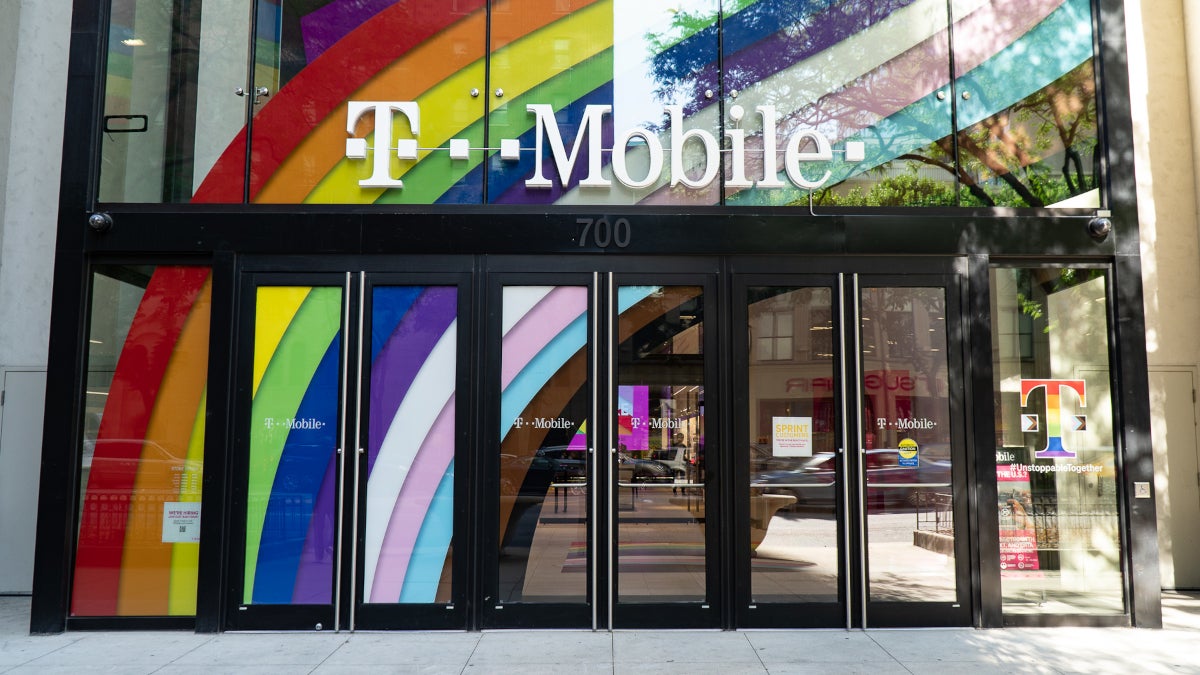
Did you ever wonder why T-Mobile was willing to spend $26 billion to buy Sprint? You didn't think it was because T-Mobile badly wanted its rivals' stores, customer list, and operations, did you? Did you? T-Mobile wanted the hoard of 2.5GHz mid-band spectrum that Sprint owned and it wanted it for a specific reason. Unlike Verizon and AT&T, both of which started their 5G build-out by working with their mmWave spectrum first, T-Mobile had a better plan.
T-Mobile's purchase of Sprint was a shrewd move and the reason why it is arguably number one in 5G
What T-Mobile realized was that the short distances that mmWave signals travel would increase the time it would take Verizon and AT&T to build its 5G platform. Instead, the nation's second-largest carrier started building its nationwide 5G first using the low-band airwaves it paid $7.9 billion for during the FCC's 2017 auction. The problem with low-band is that while it covers great distances and penetrates structures with ease, it cannot deliver blinding fast 5G service.
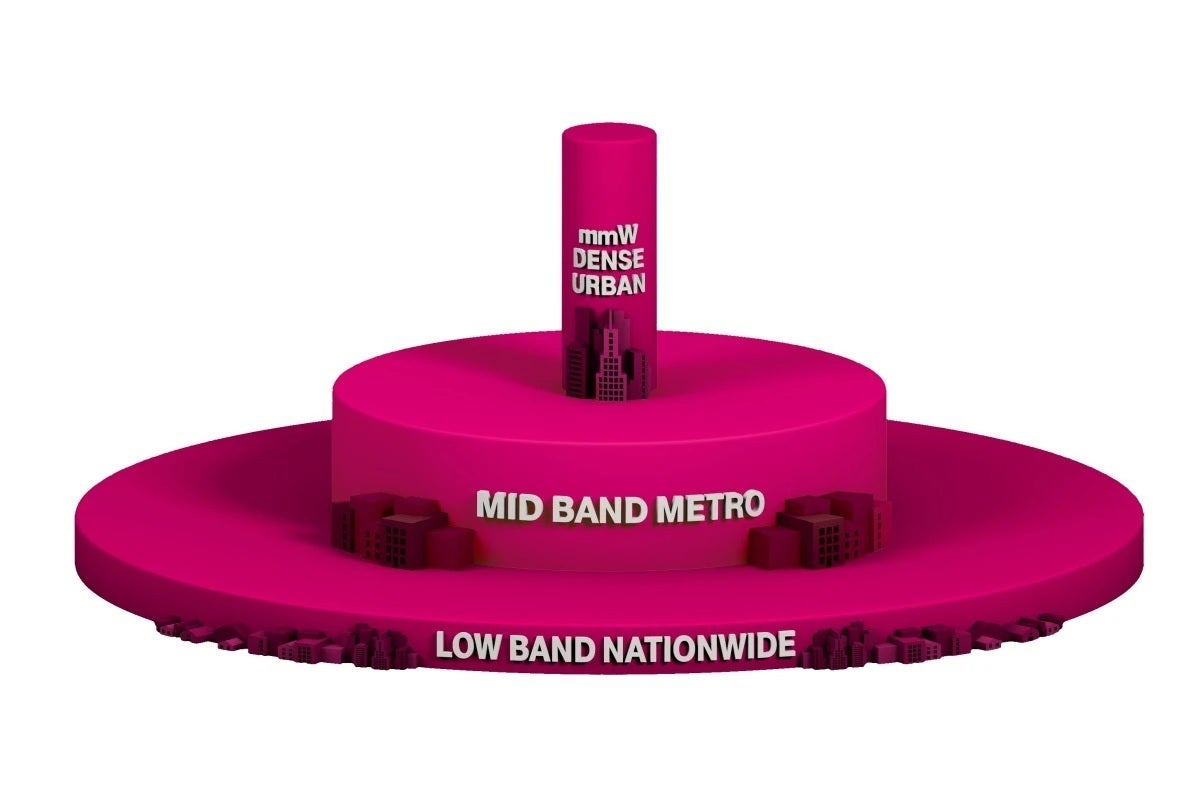
T-Mobile built its 5G network around a triple-layer cake
So in a shrewd move that has defined 5G in the United States, T-Mobile bought Sprint and took control of its target's 2.5GHz mid-band spectrum. Mid-band, as it turned out, is perfect for 5G because while the signals don't travel as far as low-band, they do travel much greater distances than mmWave. And while they can't deliver the super fast 5G speeds found with mmWave, they still can provide users with download speeds 10 times faster than 4G LTE.
Verizon and AT&T weren't going to go down without a fight. Together they spent over 68 billion to obtain licenses for mid-band frequencies in the C-band. This allowed them to have their own 5G triple-layer cake like T-Mobile promoted. And because too few Verizon subscribers could connect with the carrier's mmWave Ultra Wideband signals, Verizon soon made a change that put its mid-band service under the Ultra Wideband umbrella.
The FCC has been trying to alleviate the shortage of mid-band spectrum in the states by auctioning off more 2.5GHz airwaves. Fierce Wireless reports that round 15 of the auction (known as Auction 108) just ended with a total of $170.9 million received in bids. You might expect to see heavy demand for this auction, but of the 8,017 licenses up for grabs, only 1,913 have received multiple bids leaving the majority of the licenses (5,943) with just one solo bidder.
The soft demand, surprising as it is, has forced the FCC to institute some changes to the bidding process. The bidding rounds will now consist of four one-hour periods instead of two two-hour rounds. This change will take place starting today. The results were called "abysmal" by New Street Research, a Wall Street firm that focuses its analysis on telecom and technology.
The auction should be a "win-win" for T-Mobile
New Street sharply axed its estimates for Auction 108 from estimated proceeds of $3.4 billion to a revised forecast of $750 million. The research firm added that this is a conservative forecast and that the actual receipts may be in the neighborhood of $200 million. New Street sees T-Mobile scoring a major win-win.
Not only does it appear that T-Mobile will win most of the licenses up for bid, it also will do so by spending a lot less money than the company anticipated. When this writer started writing for PhoneArena back in 2009, he was a lot younger man T-Mobile was dead last among the four majors. It was the last to offer 3G and the last to deliver 4G. Now it is considered the most innovative of the major U.S. wireless providers and is arguably the 5G leader in the states.
One reason for the lack of demand for the 2.5GHz auction is that only 20% of the 8,017 licenses being auctioned off are considered to be "clean." According to New Street, that means that the winner of those licenses doesn't have to worry about interfering with the incumbent operator in that region. Since T-Mobile is the incumbent operator on the majority of the licenses up for bid, other bidders have no idea how long they might have to wait to access or re-lease parts of the remaining 80% of the licenses being auctioned off.
The auction is expected to end at the middle of next month, but could be cut short due to the weak demand.
Follow us on Google News






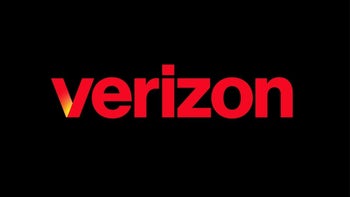

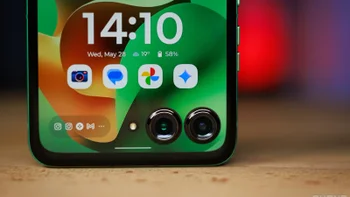
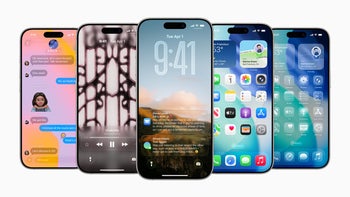
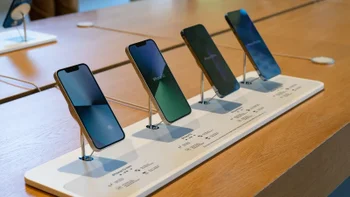

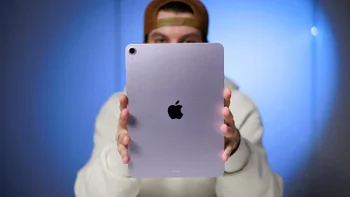
Things that are NOT allowed:
To help keep our community safe and free from spam, we apply temporary limits to newly created accounts: